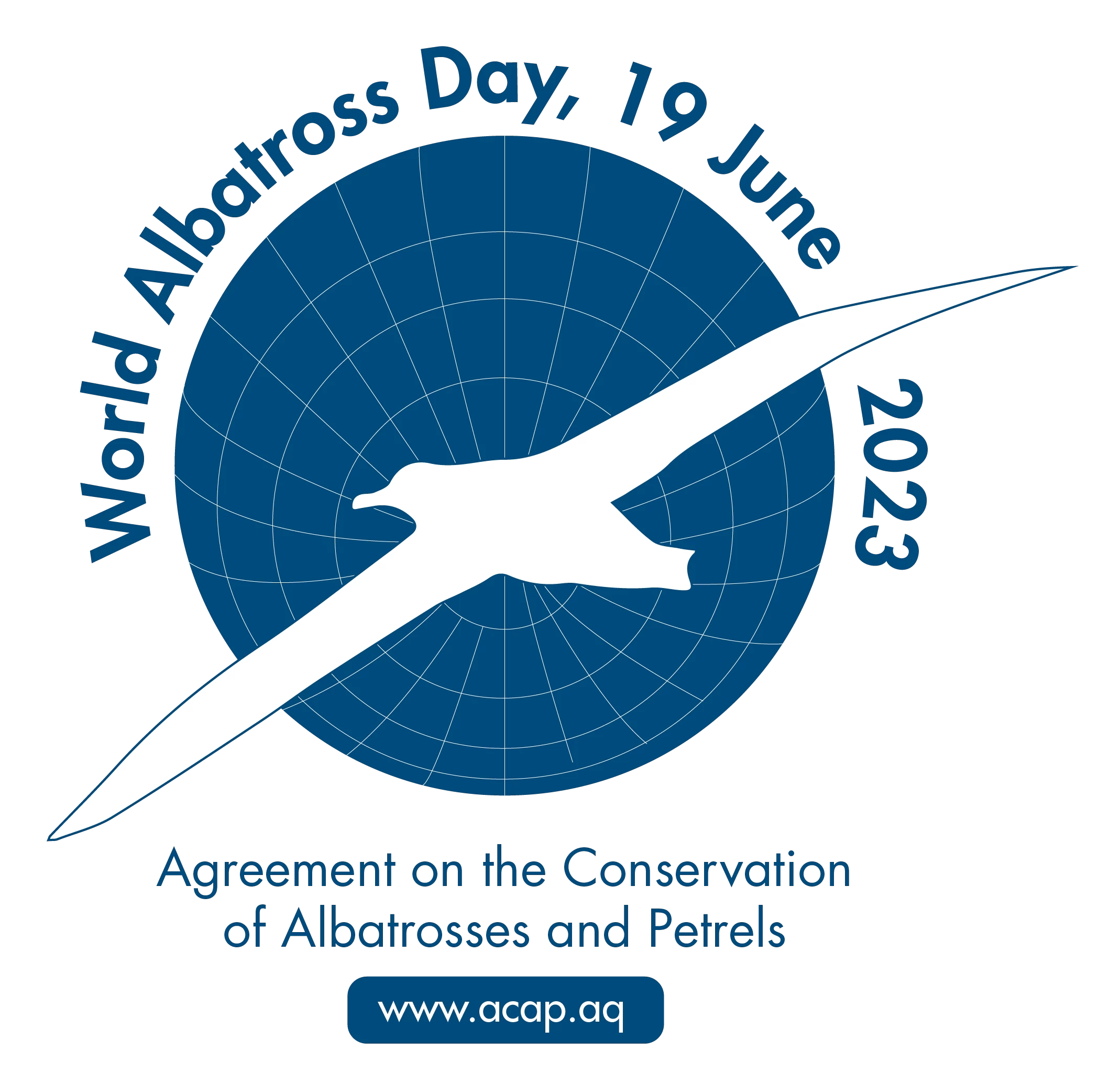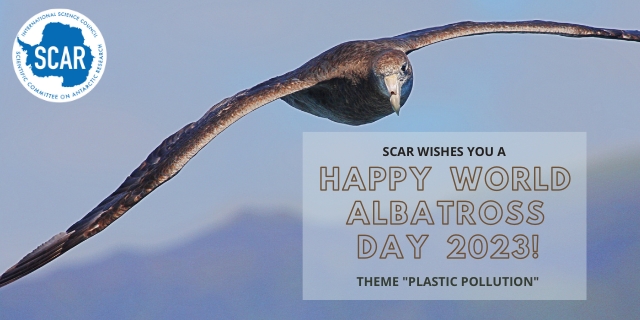 On 19 June the third World Albatross Day is celebrated online around the globe. This year’s theme is “Plastic Pollution” following “Climate Change” (2022), “Ensuring Albatross-friendly Fisheries” (2021), “Eradicating Island Pests” (2020).
On 19 June the third World Albatross Day is celebrated online around the globe. This year’s theme is “Plastic Pollution” following “Climate Change” (2022), “Ensuring Albatross-friendly Fisheries” (2021), “Eradicating Island Pests” (2020).
The day honours these magnificent birds and highlights the ongoing conservation crisis they face. The Agreement on the Conservation of Albatrosses and Petrels, ACAP, has inaugurated World Albatross Day to raise awareness of these birds worldwide, since a global effort is required to protect these global travellers. The day also falls on the date of the signing of the Agreement over 20 years ago.
Albatrosses are affected by a range of pollutants, of which plastics, whether ingested and then fed to chicks or causing entanglements, are certainly the most visible and well known to the general public. However, albatrosses face other significant pollutants, including heavy metals, (such as mercury) and POPs (persistent organic pollutants, such as insecticides).
Two new albatross species are being used to feature the theme for this year’s World Albatross Day, with artworks, posters, infographics and a music video. These are the globally Endangered Northern Royal Albatross D. sanfordi, endemic to New Zealand, and the abundant and widespread Black-browed Albatross Thalassarche melanophris. In addition, coverage is being given again to last year’s featured species, the Black-footed Phoebastria nigripes and Laysan P. immutabilis Albatrosses of the North Pacific, which ingest more plastic (and then feed it to their chicks) than do the southern hemisphere species.
Download the World Albatross Day 2023 Photo Posters & Artwork Posters here.

SCAR has published on the issue of POPs, plastics and seabirds in the past. Additionally, the ImPACT Action Group aims to facilitate coordinated investigation of chemical input to the Antarctic region. Make sure to read the following resources in celebration of World Albatross Day 2023:
- ImPACT horizon scan of priority actions and challenges in Persistent Organic Pollutant monitoring.
- ImPACT publication on seabirds as a source of pollutants
- ImPACT Action Group page
- Antarctic Environments Portal Information Summary on Microplastics
- Antarctic Envirnments Portal Microplastics infographic
